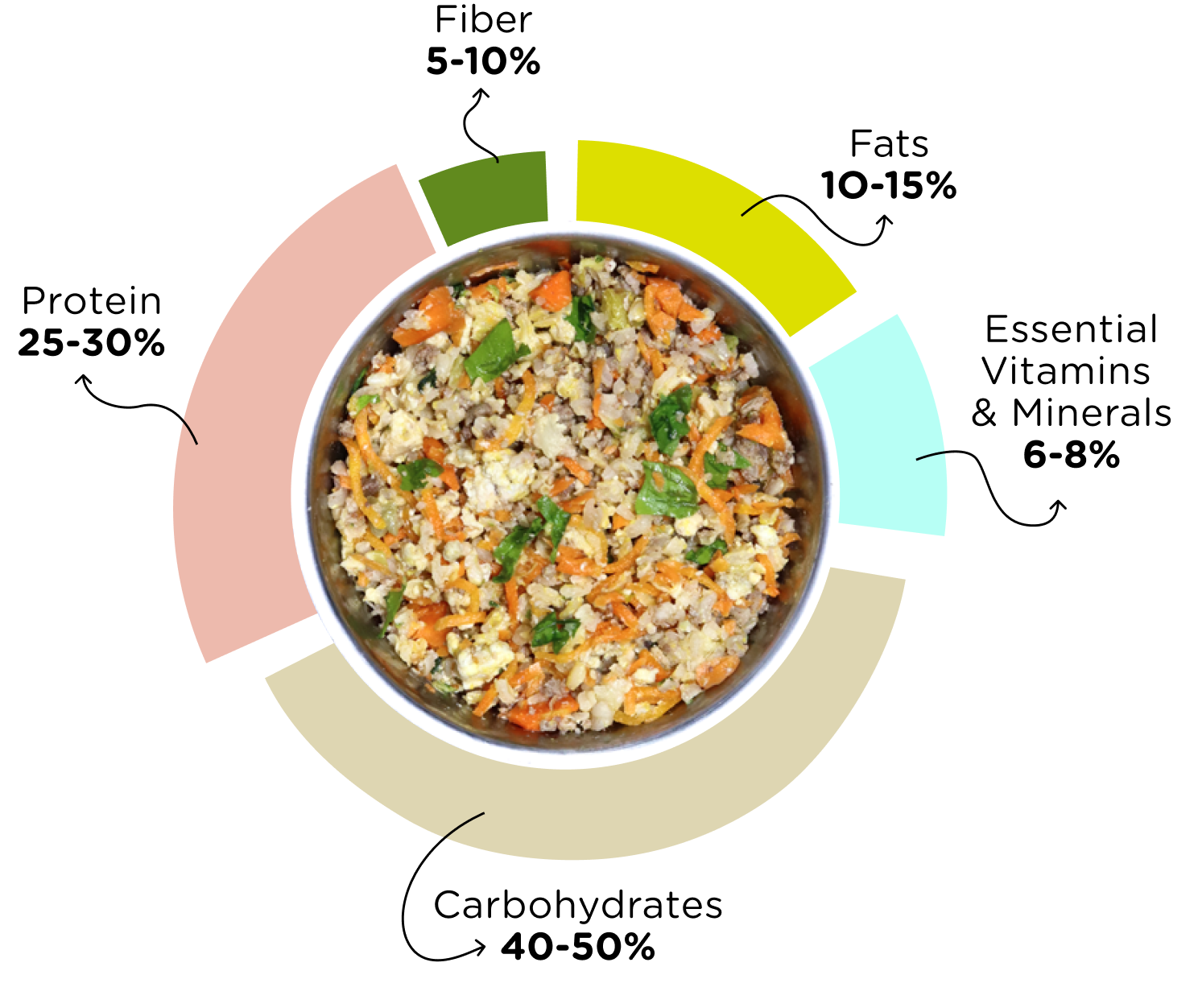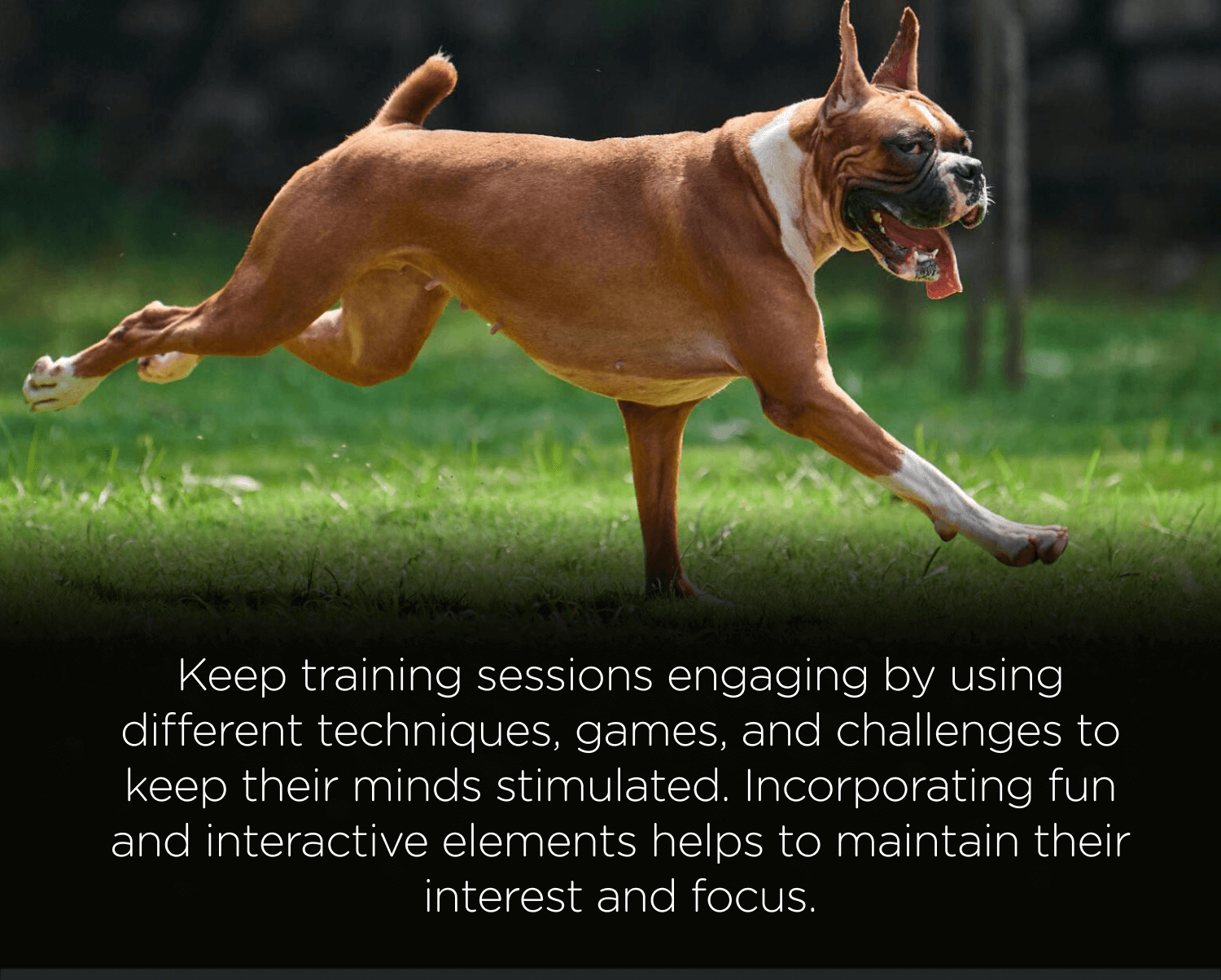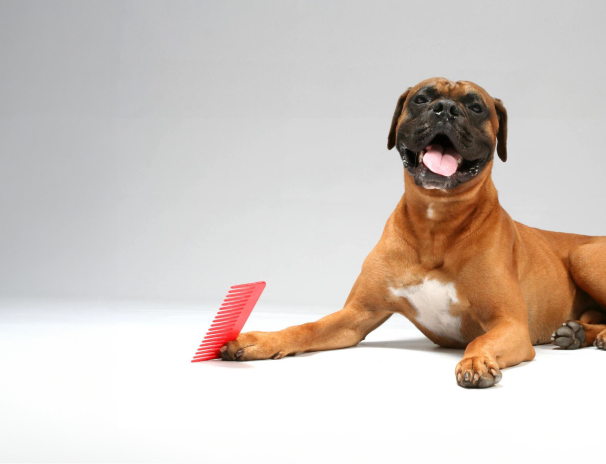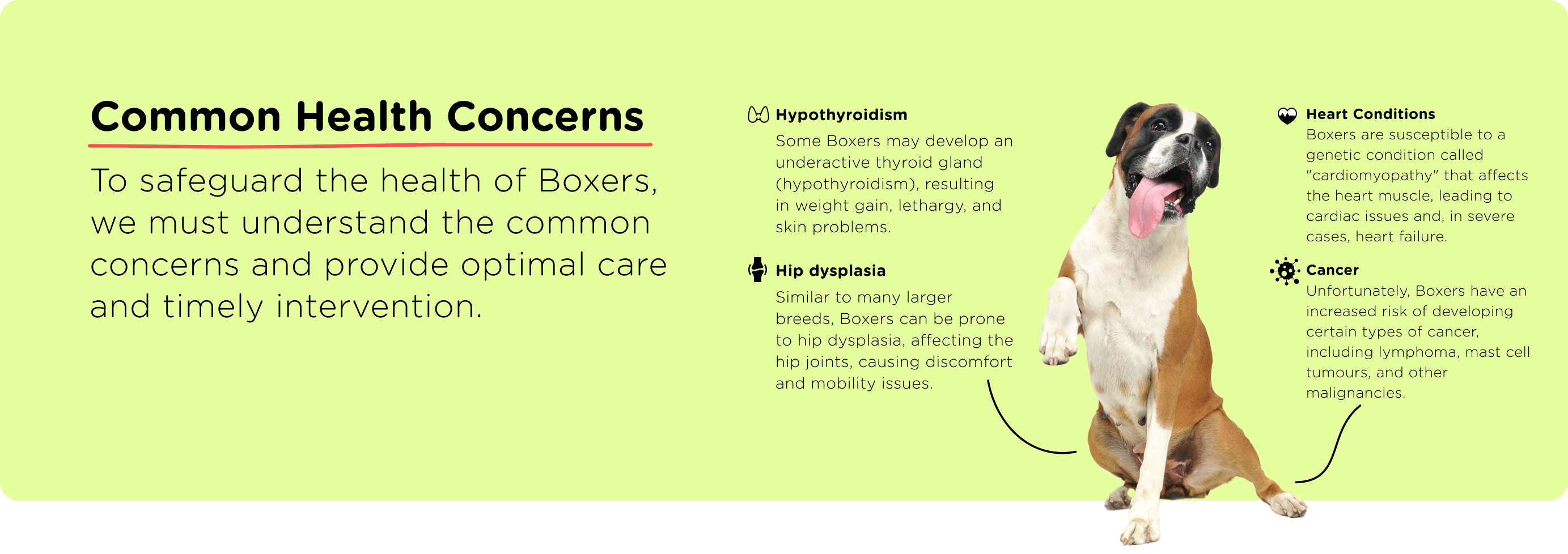In 24 cities
Boxers are high-energy dogs that thrive on regular exercise. Daily walks, interactive play, and mental stimulation are crucial to keep them physically and mentally fit.
Get product availability and delivery timelines based on your location.
Are you sure you want to delete this address?
Help us ensure a smooth delivery
Help us ensure a smooth delivery
SIZE GUIDE
Pure German Muscle Packed With A Punch Of Energy

Temperatures should be moderate for Boxers.

Temperatures should be moderate for Boxers.

These attributes have been rated by dog trainers, expert vets and pet behaviourists. remember that all dogs are individuals with their own personalities.



Choose a dog food that prioritizes high-quality proteins, making real meat the primary ingredient as boxer’s are large breed dogs that require protein for muscle development.
Feed your Boxer, food with high-quality ingredients, such as real meat and vegetables. Avoid dog food containing fillers, like corn, wheat, and by-products.
The nutritional needs of puppies are different from those of adult dogs. A puppy's diet should be higher in protein and calories to support its rapid growth and development. Diet for an adult dog should be formulated to meet its maintenance needs.
Choose a dog food that prioritizes high-quality proteins, making real meat the primary ingredient as boxer’s are large breed dogs that require protein for muscle development.
Boxers can have sensitive stomachs and should avoid food that includes fillers such as wheat and soy that are difficult to digest and may cause allergies.
Choose a dog food that is formulated for your Boxer’s age, ensuring they receive the appropriate balance of nutrients for growth, maintenance, or age-related concerns.
Maintain a healthy weight for your Boxer through careful portion control by following the feeding guidelines on the dog food packaging

Preparing home-cooked meals may be time-consuming and nutritionally incomplete. Consider adding food toppers or supplements for the lack of nutrients.
Preparing home-cooked meals may be time consuming and nutritionally incomplete, consider adding food toppers or supplements to make up for the lack of nutrients.
Boxers' innate intelligence and eager-to-please nature make them highly adaptable to training sessions. Let’s find out how to begin.

Engaging Boxers in activities like jogging, playing fetch, and going on long hikes helps to meet their exercise needs and keep them physically active.
They require interactive play for essential mental stimulation. Provide interactive toys, puzzles, and engaging training exercises to keep their minds active.
Engaging Boxers in activities like jogging, playing fetch, and going on long hikes helps to meet their exercise needs and keep them physically active.
They require interactive play for essential mental stimulation. Provide interactive toys, puzzles, and engaging training exercises to keep their minds active.
Boxers excel in training, and utilising treats enhances their obedience to basic commands like 'sit,' 'stay,' 'come,' 'heel,' and 'down.' Positive reinforcement and reward-based training methods make the process enjoyable and highly effective.



Regular grooming is essential for Boxers, despite their short and smooth coats. Keep these in mind while grooming a Boxer.

Regular grooming is essential for Boxers, despite their short and smooth coats. Keep these in mind while grooming a Boxer.
Regularly brush your Boxer's coat to remove loose hair and maintain healthy skin and coat. Bathe as needed using a mild dog shampoo.
Keep their ears clean to prevent infections. Use a vet-recommended ear-cleaning solution.
Trim your Boxer's nails regularly and inspect their paws for debris or dirt. Keep nails at a comfortable length.
Brush your Boxer's teeth with dog-specific toothpaste and a toothbrush a few times a week. Dental treats and toys can also help promote dental health.
Regularly brush your Boxer's coat to remove loose hair and maintain healthy skin and coat. Bathe as needed using a mild dog shampoo.
Keep their ears clean to prevent infections. Use a vet-recommended ear-cleaning solution.
Trim your Boxer's nails regularly and inspect their paws for debris or dirt. Keep nails at a comfortable length.
Brush your Boxer's teeth with dog-specific toothpaste and a toothbrush a few times a week. Dental treats and toys can also help promote dental health.
To safeguard the health of Boxers, we must understand the common concerns and provide optimal care and timely intervention.


Does your Boxer have a health issue? Provide them a veterinary prescription diet along with prescribed medicines.
Does your Boxer have a health issue? Provide them a veterinary prescription diet along with prescribed medicines.
Boxers are high-energy dogs that thrive on regular exercise. Daily walks, interactive play, and mental stimulation are crucial to keep them physically and mentally fit.
While Boxers do shed moderately, their short coat makes grooming manageable. Regular brushing can help minimize shedding.
Boxers aren't traditionally labeled as guard dogs, but their protective instincts make them reliable watchdogs. Proper training and socialization are essential to maximize their potential as home protectors.
Boxers aren't naturally aggressive; their behavior is influenced by genetics, training, and socialization. With proper care and training, Boxers can be friendly and affectionate pets, making them ideal companions for families.
Boxers are renowned for their loyalty and make wonderful family pets due to their affectionate nature, making them a perfect addition to any household.
Boxers are known for their playful and protective instincts, making them excellent companions for children. Their gentle demeanor and boundless energy make them perfect playmates.
2 item in cart
₹10,360

